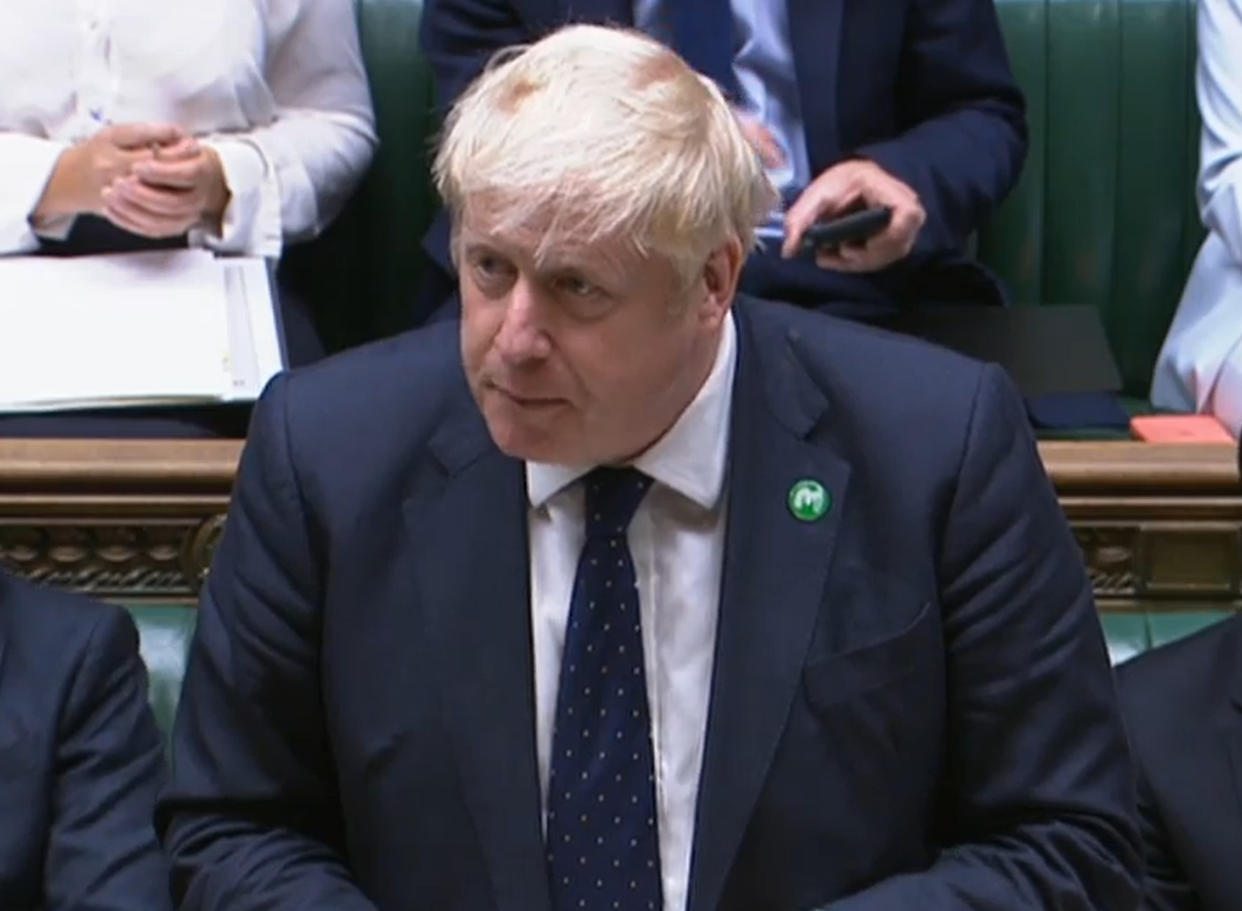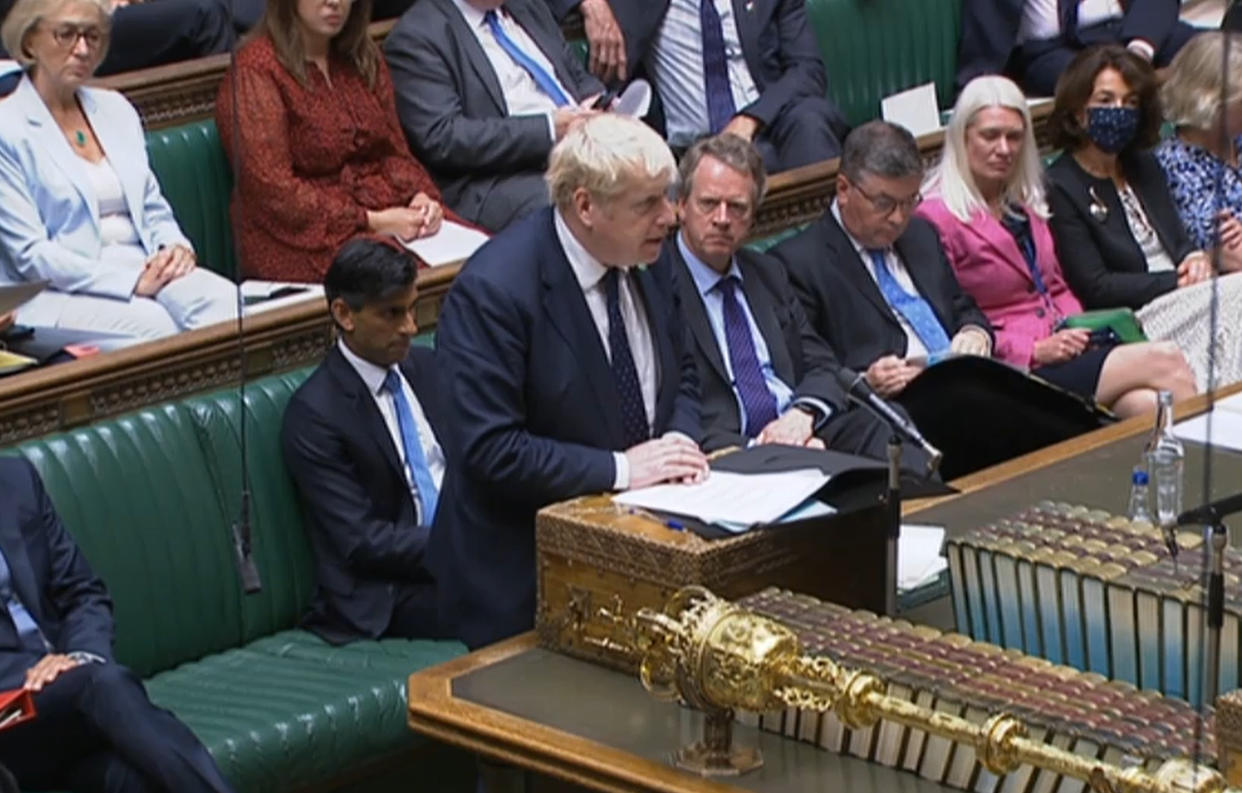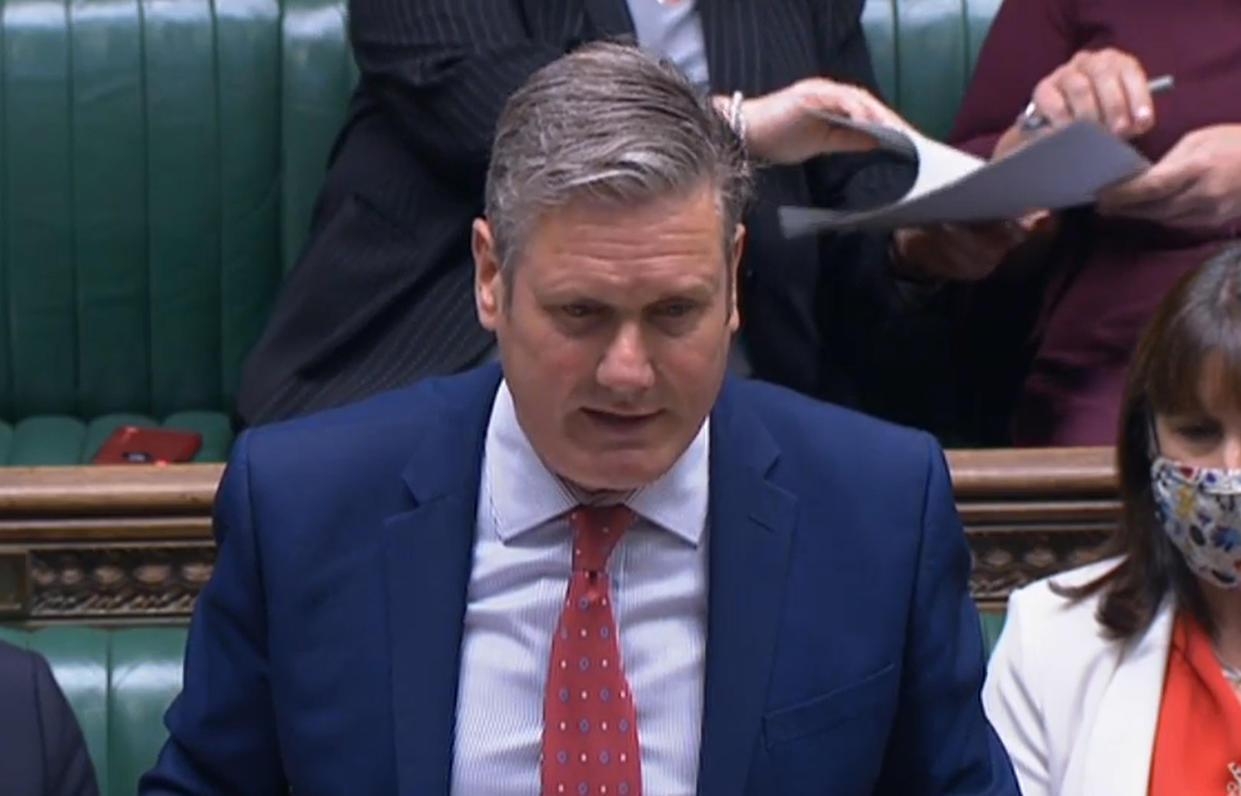Boris Johnson faces huge backlash as millions hit with National Insurance hike to reform social care

Boris Johnson is facing a backlash after breaking a manifesto promise by raising National Insurance to tax millions of people to pay for his social care reform plan.
The prime minister confirmed to parliament on Tuesday a 1.25 percentage point rise in National Insurance from April 2022 to address the funding crisis in the health and social care system.
He said the new tax will raise £36bn for frontline services in the next three years.
But his plan has been criticised by opposition politicians, social care providers and economists, although Conservative MPs were noticeably supportive in the House of Commons despite days of outcry leading up to the announcement.


“This breaks a manifesto commitment which is not something I do lightly, but a global pandemic was in no-one’s manifesto,” said Johnson.
However, Labour leader Sir Keir Starmer attacked the plan, saying: “The pretence that the prime minister is only here because of the pandemic is not going to wash.
“He is putting a sticking plaster over gaping wounds which his party inflicted.
“He made that commitment on social care before the pandemic and he said he would pay for it without raising taxes before the pandemic.”
Watch: PM’s social care plan ‘a sticking plaster over gaping wounds’
Labour MP David Lammy called Johnson's plan "unfair", saying it will make "the worst off pay for the better off".
Johnson’s plan to raise national insurance has led to huge backlash from Conservative MPs.
Many Tories were angry at the move, in breach of a commitment made before the last general election.
One anonymous Tory MP told the Financial Times: “It’s totally ****. We are asking people on low incomes to pay more tax so that privileged kids can inherit expensive houses.”
Smoke and mirrors. Making the worst off pay for the better off. @BorisJohnson's so-called social care plan is unfair and breaks the promise he made in his manifesto. The @Conservatives are the party of levelling down.
— David Lammy (@DavidLammy) September 7, 2021
Downing Street said that a typical basic rate taxpayer earning £24,100 would pay £180 a year, while a higher rate taxpayer on £67,100 would pay £715 as a result of the new tax.
About one million working pensioners will be asked to pay National Insurance for the first time ever under the plans.
Johnson said: “Our new levy will share the cost between individuals and businesses, and everyone will contribute according to their means, including those above their pension age.
“So those who earn more will pay more and because we are also increasing dividends tax-free, we will be asking better of business owners and investors to make a fair contribution, too.”
Johnson said the additional revenue from raising National Insurance would pay for the biggest catch-up programme in the history of the NHS in England, with £12bn a year to help deal with the backlog of cases built up during the pandemic.
It will also cover the reform of the social care system in England, ending what Downing Street described as “unpredictable and catastrophic” care costs faced by many families.
From October 2023, anyone with assets under £20,000 have their care costs fully covered by the state, while those with between £20,000 and £100,000 will be expected to contribute to their costs but will also receive state support.
No-one will have to pay more than £86,000 for care costs in their lifetime.
Scotland, Wales and Northern Ireland will receive an additional £2.2bn in additional health and social care spending from the levy.
In addition to the health and social care levy, there will also be a 1.25% increase in the dividend tax – to ensure those who receive their income from shares also contribute.
The £5.3bn pledged by Johnson to social care funding over the next three years is “nowhere near enough”, said Dr Jane Townson, chief executive of the UK Home Care Association (UKHCA).
“It will not address current issues and some measures may create new risks,” she said.

Mike Padgham, chairman of the Independent Care Group, said it was a “huge opportunity missed for radical, once in a generation reform of the social care system”.
He said: “It is too little and, it looks like being, too late.”
Paul Johnson, director of the Institute for Fiscal Studies economic think-tank, said the new levy came on top of bumper tax rises already announced.
“Expect the tax rises just announced to raise about £12bn a year, about 0.5% of GDP,” he said on Twitter.
“Remember that’s on top of £25bn of tax rises announced in the Budget.
“This is a huge year for tax rises: a permanent increase of 1.5% of national income to highest in peacetime.”
Watch: Boris Johnson accepts social care reform breaks manifesto pledge



